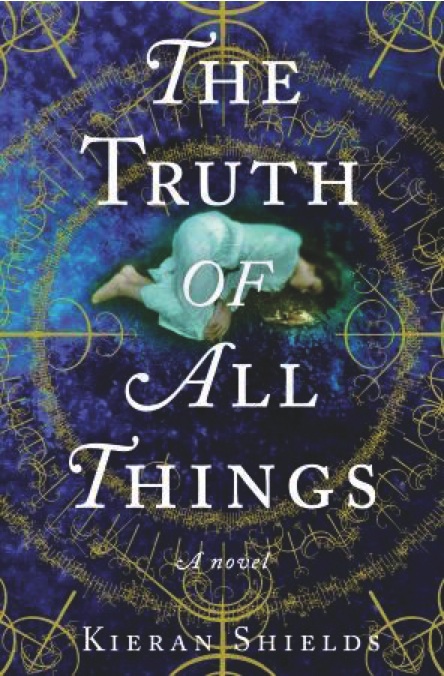Maine has a fascinating new writer in Kieran Shields, a 1996 graduate of the University of Maine Law School, whose dense and intriguing new novel, “The Truth of All Things,” is no airy take-to-the-beach fling. Nor is it a one-off story that a reader can pick up, absorb and put down again all in one evening.
Think of it more as an interactive experience, a heavy dark brocade that spreads across your knees, works its way into your bloodstream and takes you to dark places in New England history that will challenge your mind and shiver your skin.
With his senses sharply tuned to details, Shields roots his story in a familiar part of our regional heritage – the Salem witch trials of 1692. Amazing, isn’t it, how close to early European settlement of our area that was? The main story Shields is telling, however, takes place 200 years later, when a series of deaths, some occuring in Portland, recalls in eerie fashion the murderous deaths of the Salem witches and suggests an evil is loose in the land.
To solve the mysteries and apprehend the killer, this work of fiction gives us Portland Deputy Marshal Archie Lean, an affable young husband and father who is dedicated to his job and to his young and growing family. Soon, Lean is introduced to Perceval Grey, a strangely compelling Pinkerton man who is part Abenaki Indian. Grey deduces his way through the morass of killings with the cool clarity of Sherlock Holmes and pretty much takes over both the investigation and the story itself.
The two men begin their search for answers with the death of Maggie Keene, a local prostitute, whose maimed body has been found on a circle of cleared earth in a local machine room, her body arranged in ritualistic fashion. And so begins a series of macabre deaths that link the Salem witch trials and life in Portland itself.
Joined by Helen Prescott, a 28-year-old researcher at the Maine Historical Society and her uncle, Dr. Virgil Steig, the two men launch a search both into the dead prostitute’s life and the remnants of history they can find about the Salem trials themselves. The result is a Gothic novel that moves quickly both around Portland and into mysterious aspects of New England from Danvers, Mass., to Boston, finding bizarre corpses along the way.
As in a good Sherlock Holmes novel, however, Perceval Grey keeps his laser-like mind focused on the facts as they appear before him. His ability to read knowledge, guidance and past actions in those facts is one of the delights of this genuinely intriguing novel. Readers can be sure the information required to link events that have occurred 200 years apart will be forthcoming. The mystery will be solved. The sense of large forces at work will be fulfilled, though not, perhaps, in the way a reader might expect.
Still, a strong sense of New England endurance and a refusal to settle for half-truths serves the likable cast of this book well – at least most of them. And the dark shadows the Salem witch trials cast across New England begin to lift a little.
“The Truth of All Things” emerges from New Englanders of courage, a vibrant power of deduction and the joy of writing that has a compelling story to tell.
Nancy Grape writes book reviews for the Maine Sunday Telegram.
Send questions/comments to the editors.


